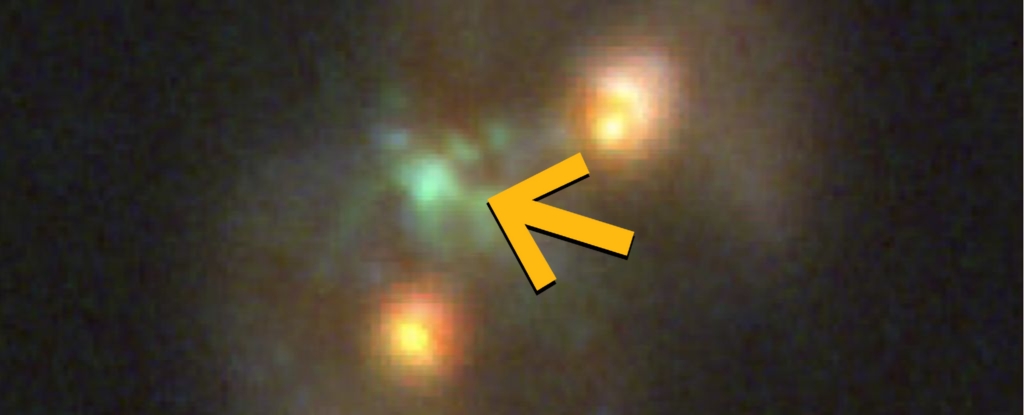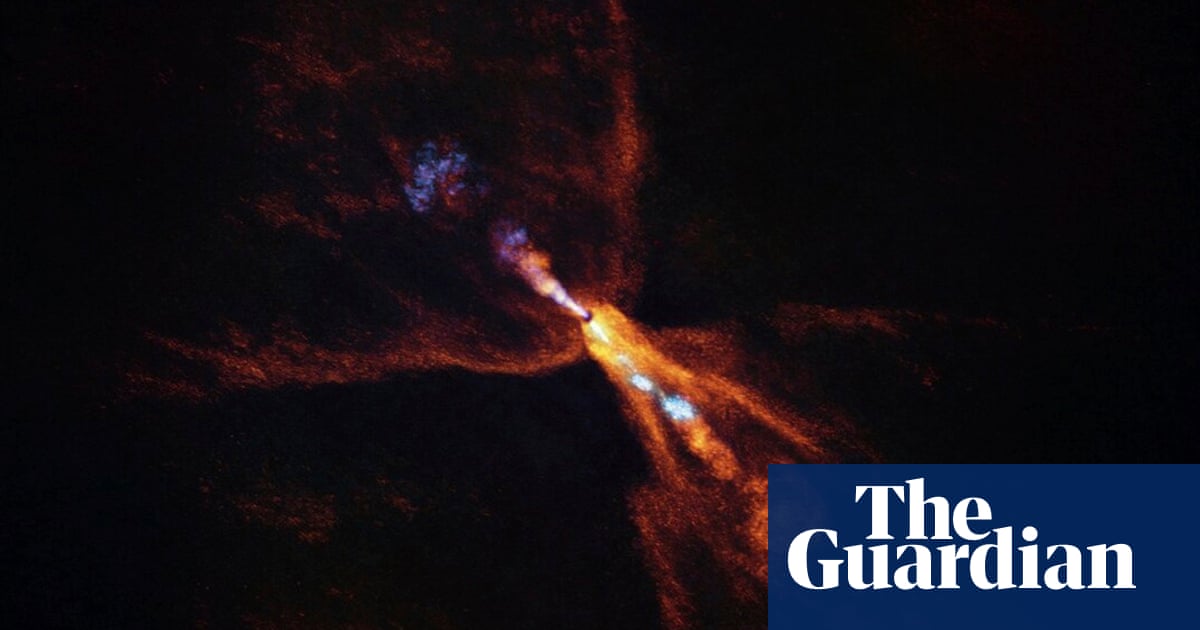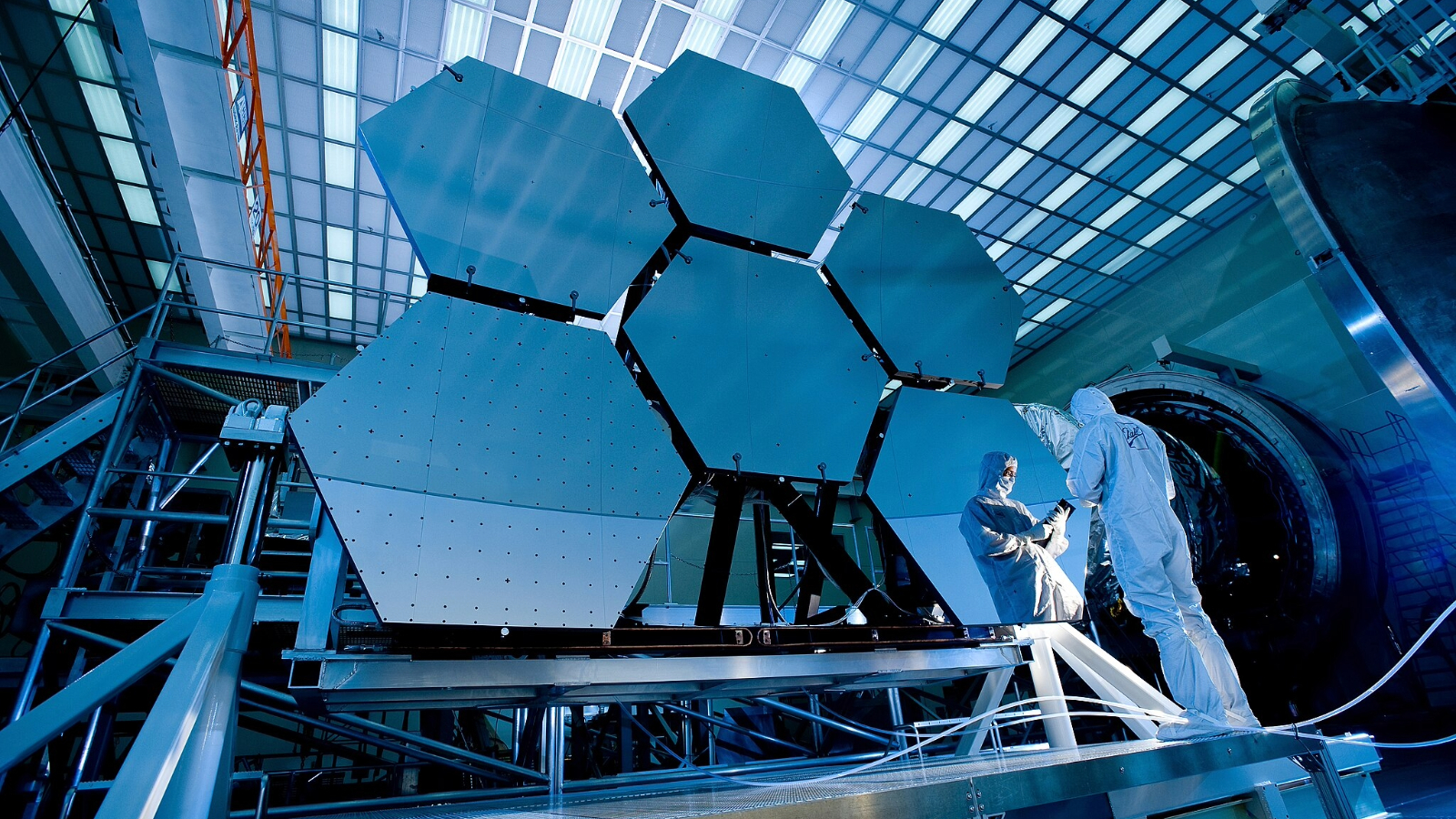T4K3.news
Astronomers capture first evidence of supermassive black hole formation
Observations from the James Webb Space Telescope reveal a black hole forming between two galaxies.

Astronomers capture the nascent stages of a supermassive black hole forming between two galaxies.
Observations Reveal Formation of Supermassive Black Hole
Data from NASA’s James Webb Space Telescope shows what appears to be a supermassive black hole forming between two merging galaxies. These galaxies, now referred to as the Infinity Galaxy, reside 8.3 billion light-years from Earth. The observations suggest that this black hole is developing from gas clouds that were compressed and shocked during the collision of the two galaxies. This discovery supports a theory that contrasts with the traditional views of black hole formation. Previous hypotheses indicated that supermassive black holes emerged from exploding stars or smaller black holes merging, but the current evidence points towards a different path of formation. Researchers indicate that they may have witnessed the birth of a supermassive black hole, a phenomenon that until now has remained speculative.
Key Takeaways
"We suggest that the SMBH formed within this gas in the immediate aftermath of the collision, when it was dense and highly turbulent."
This highlights the conditions under which the supermassive black hole is believed to have formed.
"If our proposed scenario is confirmed, the Infinity galaxy provides an empirical demonstration that direct-collapse formation of SMBHs can happen."
This statement emphasizes the significance of the findings and their potential impact.
The recent discovery of a forming supermassive black hole raises significant questions about our understanding of cosmic evolution. The findings support the hypothesis that tremendous gas clouds can directly collapse into these massive entities, challenging the previously accepted theories of birth from smaller black holes or stellar explosions. This insight not only enhances our knowledge of black hole formation but may also impact our understanding of how galaxies evolve over vast timescales. Observing black holes in their infancy could reshape our cosmic narratives and drive further investigation into the birth of galaxies and the fundamental processes behind them.
Highlights
- Witnessing a black hole birth is a cosmic turning point.
- This discovery could change our understanding of black hole evolution.
- The origins of supermassive black holes could finally be clear.
- Gas clouds may hold the key to understanding black hole formation.
Potential Impact on Scientific Understanding
The insights derived from these observations may compete with established theories about black hole formation, prompting scrutiny and discussion within the scientific community.
Further research may unveil more about the early universe and the life cycle of black holes.
Enjoyed this? Let your friends know!
Related News

Astronomers capture birth of supermassive black hole

Discovery of Possible Supermassive Black Hole Formation

NASA's Webb Telescope Observes New Solar System

Astronomers discover rocky planet seeds in distant star system

New Study Suggests Universe May Be Inside Black Hole

James Webb Space Telescope unveils ancient galaxies

Astronomers observe second flare from same black hole
